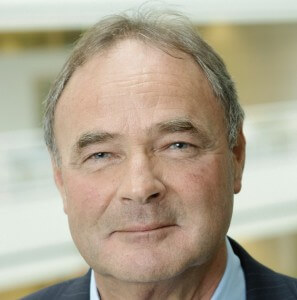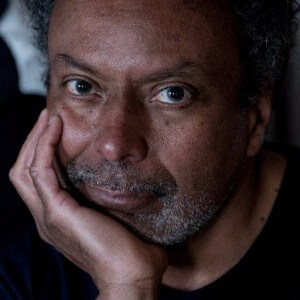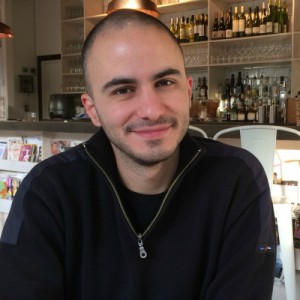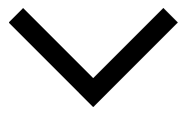How can democratic initiatives become democratic innovation?
Many experiments are happening to make cities smarter, more sustainable and more democratic. But often these initiatives remain just that: experiments. In the 20th episode of New Democracy we question how experiments can be scaled up to fundamentally change business as usual. Innovators working in Spain, Brazil and the Netherlands share with us how their projects became more than just experiments, but made a lasting impact on policy and decision-making. Can we formulate a set of guidelines on how to turn bottom-up initiatives and innovations into new modes of governing?
The evening will exist of two parts. In round one we will go into conversation with guests Miguel Arana Catania, Paola Huijding and Mellouki Cadat about setting up a long term collaboration between citizens and government. How can innovative experiments find their way into (local) governments? In Madrid the 15 M movement formed one of the starting points for incorporating a citizen participation platform into city governance. Similarly, in Brazil and the Netherlands innovative urban developments have been made possible by new forms of collaboration between citizens and government.
In round two we will go into conversation with Miguel Arana Catania, Matt Poelmans and Marian de Kleermaeker to discuss the requirements and guidelines to innovate governance. What hindrances do innovation processes encounter within the government and what needs to change in order to facilitate these processes?
About our guests
Special guest Miguel Arana Catania is the manager of the Decide Madrid platform and participation director of the Madrid City Council. He has been actively involved in the 15M movement in Spain since its beginning, with an emphasis on the digital tools and the connection of the movement with other countries. Co-founder of LaboDemo, an organization dedicated to the design, implementation, and development of participation strategies and digital tools. He has been working in the participation team of Podemos and Ahora Madrid, defining the participation strategy of the parties, and at the European level designing new tools for the future democracy in the D-CENT project.
Paola Huijding is senior project leader Sustainability at Platform31 and founder of Volpi Urbane an international office for research, urbanism, and architecture that aims to provide creative solutions to urban issues by collaboration. In her work, innovation is about changing realities for people and it succeeds when it creates new pathways for solving entrenched social problems, resulting in the lasting transformation of the systems that most affect vulnerable populations and leave stronger social relationships in their wake.
Brieuc-Yves (Mellouki) Cadat-Lampe is a political scientist and senior consultant at Movisie, the Netherlands Institute for Social Development, is a Citymaker from Amsterdam. Mellouki has had a leading rol in local, national and international projects developing community and open source based online platforms focusing on participatory budgeting, neighborhood bottlenecks tours and tackling youth unemployment.
Back in the last century Mellouki founded in 1994 with former MP Cherribi and CEO CompuServe Nederland Roelf Sluman the very first Dutch Political Online Forum. In 2003 he was declared Most Digital Councillor of the Netherlands by a national jury chaired by Groningen’s mayor Jacques Wallage.
Matt Poelmans is Director of CitizenVision, Vice Chairman of the Dutch Web Accessibility Foundation and Citizen’s Representative at Schiphol Airport Council (ORS). In the past Poelmans was in charge of several eGovernment programs at the Dutch Ministry of the Interior and ICTU: Public Counter 2000, eGovernment Knowledge Centre, Citizenlink. Subsequently he worked as Senior Advisor at PBLQ in The Netherlands. He has been active in politics on local, provincial and national level. Poelmans invented the eCitizen Charter, a quality standard for e-Government written from the citizen’s perspective. To date the eCitizen Charter has been translated in 23 languages. Implemention of the charter is recommended by UN, OECD, Council of Europe and UK Cabinet Office.
Marian de Kleermaeker is Project director ‘Strengthening Innovation capacity’ at the Digital Agenda 2020, which is a program of VNG/KING. The Digital Agenda 2020 aims to prepare and support Dutch municipalities for new digital information services. This is done by examining and gathering newly developed tools and knowledge, and share these among municipalities. Marian has also been working as an expert in transition management, particularly in the social domain and as educator in network collaborations.
About the programme
In the first half of the evening we will talk with Miguel Arana Catania, Paola Huijding and Mellouki Cadat about setting up long-termrm collaboration between citizens and government. How can innovative experiments find their way into (local) governments? In Madrid, the 15 M movement formed one of the starting points for incorporating a citizen participation platform into city governance. Also in Brazil and the Netherlands innovative urban developments have been made possible by new forms of collaboration between citizens and government. In the second half, the conversation continues with Miguel Arana Catania, Matt Poelmans and Marian de Kleermaeker to discuss the requirements and guidelines to innovate governance. What hindrances do innovation processes encounter within the government and what needs to change in order to facilitate these processes?
E-participation tools
Since 2015 the Madrid City Council is setting the example with a firm commitment to transparency and citizen participation by the use of a digital tool. Through the website Decide Madrid citizens can propose ideas, join discussions and vote on ideas for the city. The website also facilitates the most ambitious participatory budget in Europe, enabling citizens to decide on the use of 60 million euros of the city budget. Because of the objective of the City Council to spread direct democracy beyond Madrid the software of the platform is open source and free to be used by other institutions. To bring these kinds of digital innovations to the Netherlands, Netwerk Democratie has set up the project E-participation tools in the Netherlands in collaboration with the Dutch Ministry of Interior and the Waag.
More information
Location:
Pakhuis de Zwijger, Grote zaal
Piet Heinkade 179
1019 HC Amsterdam
Entry free, sign up via Pakhuis de Zwijger.







